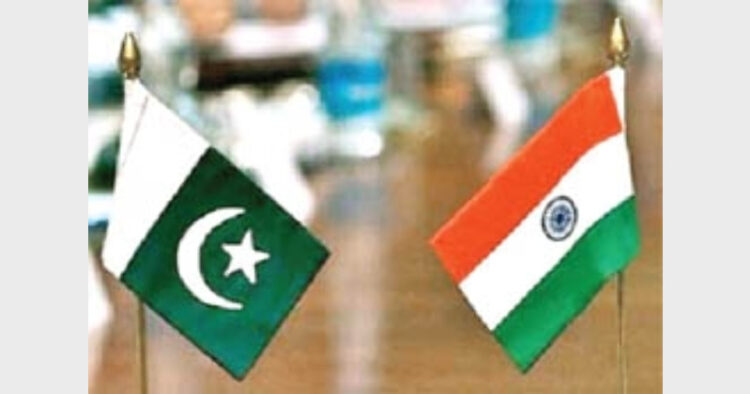Opinion: The challenge of India-Pak dialogue
Intro: Early thaw in relations between the two countries would be rather simplistic but not to engage in dialogue will open up speculations.
The dialogue process between India and Pakistan stalled after it came to light that Pakistan had sponsored 26/11 terror attack in Mumbai. The long hiatus came to an end post Narendra Modi and Prime Minister Nawaz Sharif’s historic meeting during the swearing in ceremony of the Indian premier. As an outcome of the meeting, foreign secretaries of India and Pakistan are scheduled to meet on August 25, 2014. The talks have been slated a month before the two leaders are expected to meet in New York in the backdrop of the United Nations General Assembly session. It is apparent from the move that Prime Minister Modi wants a specific agenda in place before the second meeting.
The first meeting between the two heads of state was a resounding success. Sharif wrote to the Indian PM saying, “I must say that I have returned much satisfied with our meaningful exchange of thoughts on matters of bilateral and regional interest.”
Post the meeting, Pakistani media that had earlier been at pains to project a Hindu-nationalist identity for Narendra Modi immediately took a conciliatory tone. There was talk of a forward movement in dialogue. It was opined that talks with Bharatiya Janata Party (BJP) are likely to be more productive than with the Congress since Modi has declared his intention of furthering the agenda laid down by party’s veteran leader and former Prime Minister Atal Behari Vajpayee, and is a matter close to Sharif’s heart.
During the meeting, PM Modi made two issues very clear. One, Pakistan must stop export of terror to India and bring the perpetrators of the 26/11 Mumbai terror attack to book. Second, a step towards forwarding trade and economic activity would be advantageous to both countries.
So far Pakistan has provided no good reason for optimism on the security front. The PM has categorically stated that talks cannot be held in the deafening noise of guns and Pakistani guns are booming long and hard along the line of control and the international border in Jammu & Kashmir. Cease-fire has been violated by Pakistan about twenty times ever since the BJP government came to power in May end; this when the Pakistan army is involved in a civil war like situation in North Waziristan.
Hafiz Saeed, the prime accused in the Mumbai terror attack is roaming around freely and spreading anti-India venom across the country despite a $ 10 million bounty placed on his head by the US. Two days after announcing the date for resumption of the secretary level talks India summoned a top Pakistani diplomat to voice unhappiness over the inordinate delay in the trial of seven accused in the Mumbai terror case. The message is amply clear.
On the front of economic cooperation the grant of the reciprocal Most Favoured Nation (MFN) status to India by Pakistan is pending for nearly two decades while India had extended the status to Pakistan way back in 1995. MFN is normally sought by smaller countries to derive trade benefits.
Being a businessman, Sharif fully understands the value of granting MFN status to India. The hinderance is the misinformation being spread by Jihadi organisations and Pakistani army- They go around saying that opening trade with India would be tantamount to rubbing salt on the wounds of the Kashmir people; it will break the business of small entrepreneurs in the country etc.
Pakistan is now looking at boosting commercial relations by granting Non-Discriminatory Market Access (NDMA) to India. NDMA will grant India the same benefits as envisaged under MFN. The previous government in India was agreeable to this but the present government has reservations mainly because Pakistan is not
supporting India’s efforts in the
World Trade Organisation despite the same being in favour of developing countries. The Indian government has placed its bet on the ability of Sharif to deliver on his promises despite knowing full well the limitations under which he has to functions so far as dealing with India is concerned.
A recent editorial of a prominent Urdu daily of Pakistan Nawa-e-Waqt has stated that India’s “attitude and aggressive policies” would sabotage the talks and Pakistan must move forward cautiously to keep its own interest and the interest of Kashmir intact.
Nawaz Sharif is not his own master when it comes to formulation of policy on India. He seeks approval from the army so far as engagement with India is concerned. And this is the weak link in the dialogue process. But India has to keep the options open to let the world not doubt her desire for a forward movement. The only option is to move on and hope for the best.
-Jaibans Singh (The writer is Editor www.defenceinfo.com) [email protected]














Comments